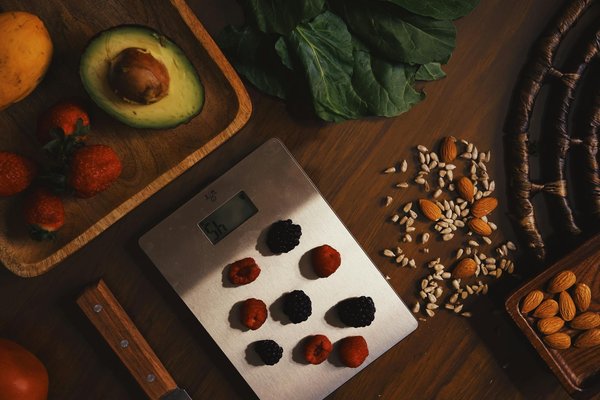Explore Health Topics That Matter
Browse comprehensive guides and latest insights across all aspects of health and wellness
What Our Readers Say
Real feedback from people who trust Twinshelp for their health information

I've been reading Twinshelp for over a year now and the pregnancy guides have been invaluable. The articles are well-researched, easy to understand, and genuinely helpful for expecting parents navigating their health journey.

As someone managing a chronic condition, finding reliable health information is crucial. Twinshelp provides clear, medically accurate content without the overwhelm. The disease prevention articles have helped me make better lifestyle choices.

The senior health section has been a game-changer for understanding my parents' healthcare needs. The content is compassionate, informative, and addresses real concerns that many families face. Highly recommend this resource.
Latest articles
Our recent publications

Boosting brain power: can puzzles and games safeguard seniors against cognitive decline?
Cognitive health is crucial for maintaining senior brain function and overall well-being. As individ...

How Genetic Testing is Revolutionizing Personalized Treatment Strategies for Autoimmune Disorders
Genetic testing has become an invaluable tool in understanding autoimmune disorders. By analysing an...

Transforming trauma: how art therapy enhances emotional healing for ptsd recovery
Art therapy, an integrative mental health practice, uses creative expression to promote emotional he...

Unlocking the benefits: how plant-based diets transform inflammatory bowel disease management
Inflammatory bowel disease (IBD), which includes conditions like Crohn's disease and ulcerative coli...

Unraveling the Links: How Chronic Stress Fuels the Rise of Cardiovascular Diseases
When we think about the risk factors for cardiovascular disease (CVD), we often consider the usual s...

Effective Breathing Strategies to Alleviate Asthma Symptoms in Children: Techniques for Relief
Asthma in children is a chronic respiratory condition characterised by inflammation and narrowing of...

Elevating antibiotic efficacy: transform your diet to enhance bacterial infection treatments
Antibiotics are powerful tools against bacterial infections, but their effectiveness can be influenc...

Exploring the Health Benefits of Embracing a Zero-Waste Lifestyle: A Comprehensive Guide
Adopting a zero-waste lifestyle is a journey towards sustainability and eco-friendly practices. This...

How Daily Sunlight Influences Serotonin Production: Understanding the Connection for Better Mood and Well-Being
Serotonin, a crucial neurotransmitter, plays a pivotal role in mental health and mood regulation. It...

Top Dietary Strategies for Effectively Managing Chronic Fatigue Syndrome
Chronic Fatigue Syndrome (CFS), also known as Myalgic Encephalomyelitis (ME), is a complex and debil...

Unraveling the Connection: How Microbiome Diversity Shapes Your Health
When we think about our bodies, we often forget that we are not alone; we are hosts to trillions of ...

Elevating well-being: how digital tools enhance mental health for remote workers
Navigating the complexities of mental health when working remotely can be daunting. Digital tools of...

Exploring the Effects of Prolonged Antidepressant Use on Bone Density Among Postmenopausal Women
Antidepressants are commonly prescribed to address mental health conditions, with a significant prev...

Exploring the Impact of CPAP Therapy on Cognitive Abilities in Sleep Apnea Patients: What You Need to Know
Sleep Apnea is a common sleep disorder characterized by repeated interruptions in breathing during s...

Exploring the Impact of Phototherapy on Seasonal Affective Disorder in Cold Climate Regions
Seasonal Affective Disorder (SAD) is a type of depression that typically occurs during the winter mo...

How High-Altitude Living Influences Chronic Obstructive Pulmonary Disease: Understanding the Effects
Chronic Obstructive Pulmonary Disease, commonly known as COPD, is a long-term lung disease that typi...

Unlocking Personalized Depression Treatment: The Impact of Genetic Screening
Genetic screening, or pharmacogenomic testing, is a revolutionary approach in the field of psychiatr...

Empowered health: customized nutrition plans for uk women to tackle gestational diabetes
Gestational diabetes is a condition that occurs during pregnancy, affecting a substantial number of ...

Exploring the UK"s Guidelines for Fetal Spinal Abnormality Screening: Key Recommendations Unveiled
Fetal spinal abnormalities are complex conditions affecting a baby's spinal cord development in the ...

Revolutionizing Prenatal Care: Cutting-Edge Technologies Adopted by UK Hospitals
In the ever-evolving landscape of healthcare, the UK is at the forefront of adopting innovative tech...

Effective Approaches for UK Pediatric Allergists to Tackle Severe Allergic Reactions in Children
Effective management of severe allergic reactions in children involves evidence-based approaches roo...

Exploring Cutting-Edge Treatments for Achilles Tendinitis by UK Podiatrists: Innovative Approaches Unveiled
Achilles tendinitis is a common condition where the tendon connecting the calf muscles to the heel b...

Revolutionary Protocols: How UK Paramedics Are Enhancing Acute Heart Attack Care Before Hospital Arrival
In the realm of Acute Heart Attack Care, understanding the Current Practices is crucial for effectiv...

Discover the Top Stress-Relief Strategies for Seniors Aged 90 and Above: Effective Techniques for Wellness
Stress in seniors, particularly those in their 90s, is influenced by several factors that significan...

Essential Oral Care Tips for Seniors with Dentures: Best Practices for a Healthy Smile
Caring for dentures is pivotal for maintaining both oral hygiene and the longevity of the appliances...

Identifying Overmedication in Seniors: Key Signs and Effective Management Strategies
Understanding overmedication is crucial when it comes to addressing elderly medication issues. Overm...

Empower your endurance: the impact of kettlebell training on women"s fitness across the uk
Kettlebell training presents unique and effective attributes that enhance women's fitness, particula...

Empower your journey: innovative fitness approaches for uk residents living with arthritis and conquering chronic pain
Finding tailored innovative fitness strategies for individuals with arthritis is crucial for maintai...

Enhancing teen heart health in the uk: the transformative power of aerobic swimming exercises
Aerobic swimming offers a range of benefits for teenage heart health by enhancing cardiovascular fit...

Maximize your workout: crafting an effective home fitness plan for uk residents with limited space
Home workouts are increasingly popular in the UK fitness culture, but limited space often impacts ex...